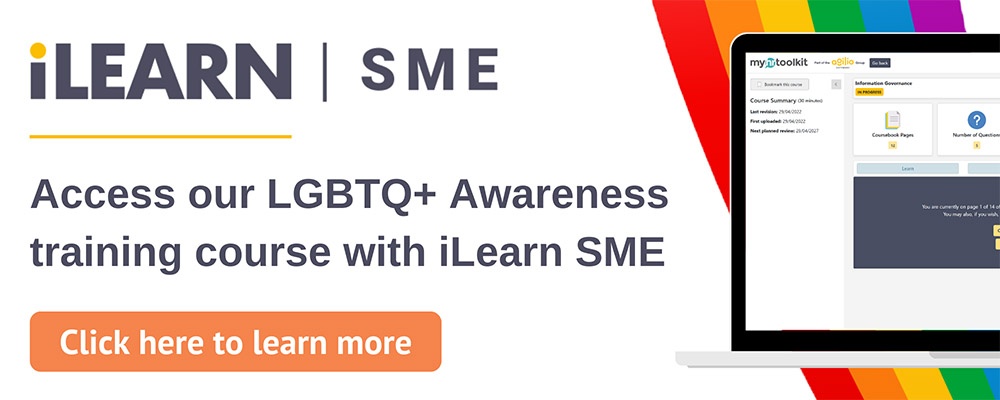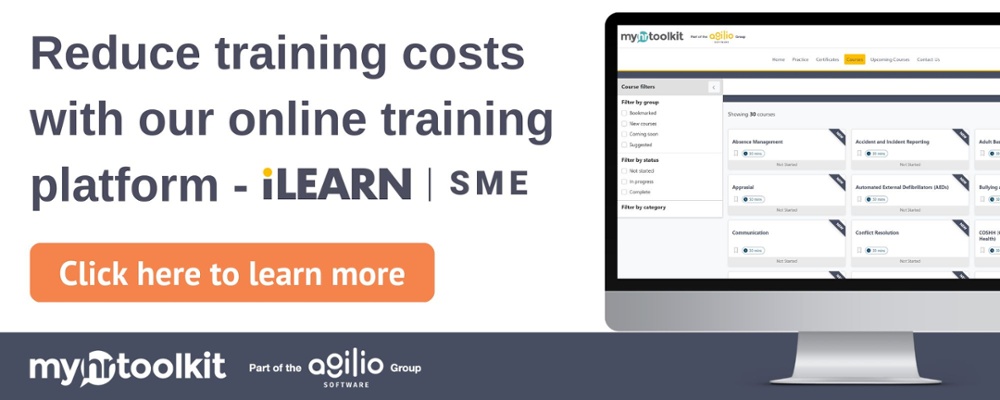Independent HR professional, Gemma Hart, writes about the importance of equality and diversity training in the workplace and how this can lead to higher productivity, creativity, and more.
While it would be wonderful to live in a peaceful world free of bullying, harassment, and discrimination, unfortunately, we don’t. But we’re slowly moving towards it.
More and more companies are now emphasising the need to create a more equal and diverse workforce, with almost 70% of executives seeing diversity and inclusion as a vital issue in need of addressing.
According to InStride, 92% of business leaders also now agree that a strategic workforce education program should help an organisation achieve its diversity and inclusion goals.
This is mainly because issues surrounding diversity remain rife in today's society; women account for more than half of all job losses, while 44% of Black and 61% of Hispanic individuals were shown to experience job and wage losses during the COVID-19 pandemic.
Having an equal and diverse workplace is, therefore, vital to ensuring that workers not only feel like they're being treated fairly but that their differences are also being celebrated.
However, achieving this can be a lot easier said than done. So, what can you do? How can you, as an employer, shape a workforce that treats all of its members of staff – both old and new – in the same, fair manner?
Prioritising staff education through equality and diversity training is a great place to start – and we’re here to tell you why.
What is Equality & Diversity Training?
Equality and Diversity training refers to an education programme designed to teach workers the importance of behaving responsibly in the workplace, helping educate them on how to appropriately engage with each and every one of their colleagues.
This training programme is also designed to teach staff everything they need to know about the Equality Act 2010 and the different types of Protected Characteristics that exist in law, helping them understand the multiple forms that discrimination can come in – some of which they may unintentionally be doing already.
These types of training courses also aim to address key components of diversity and inclusion in the workplace, dealing with issues like unacceptable behaviour, stereotyping, discrimination and victimisation, amongst many others.

Advantages of Providing Equality & Diversity Training
Equality and diversity training can offer a ton of benefits both individually and from a wider working perspective.
By giving everyone a solid understanding of how valuable it can be to have an inclusive workplace, equality and diversity training not only teaches employees what good practice is but also how to implement it in their day-to-day lives.
This, in turn, can then help create a work environment that's as productive and high in morale as it is diverse, providing a wide range of additional benefits:
- Increased Creativity. Businesses can't continue to grow if everyone thinks and acts in the same way. Therefore, having a more diverse workforce will offer new ideas and multiple ways of thinking, increasing your likelihood of success.
- Easier Client Retention - Clients often look for businesses that relate to their own demographic. Therefore, having a workforce that matches the demographic of your target audience will help you attract and retain them over a longer period.
- Attract Better Workers - Having a diverse workforce is a big pull for employees. Therefore, being accommodating to religious holidays and child-related requirements will open up your job opportunities to a much bigger pool of applicants.
- Increased Productivity - When someone is employed based on their experience and aptitude, this will often empower them to want to perform at their best, making them want to work as productively as possible to benefit the business.
- Happier Company Culture - Working in a diverse environment where people feel valued will greatly improve the company culture, creating a safe space where workers can feel happier in their roles. This can then significantly reduce the rate of staff turnover.

How to Run Equality & Diversity Training
In today's day and age of continual technological advancements, equality and diversity training is no longer the pen-and-paper programme it used to be.
In fact, nowadays – and largely in light of the transition towards remote work – implementing diversity training is all about being online and immersive.
Virtual reality training, for instance, can offer a great way of mimicking real-life situations by creating complex scenarios that allow employees to learn in a more fun and engaging format, building a virtual training world around them.
Similarly, our own specialist e-learning training platform – iLearn SME – has been specifically designed to allow small business owners to take control of their business-critical employee training online.
In as little as thirty minutes, our expertly-led training courses can teach your employees everything they need to know about equality and diversity in the workplace, providing them with a certificate to record their achievements.
As time goes on, we will also be adding more and more of these courses to our library, helping you and many other SME employers create a sustainable, diverse and ethical company culture, both now and in the future.
To find out more about iLearn and the wide range of training courses we offer at the moment, simply click here.
Read more from the myhrtoolkit blog

Written by Gemma Hart
Gemma Hart is an independent HR professional working remotely from as many coffee shops as she can find. Gemma has gained experience in a number of HR roles but now turns her focus towards connecting with a wider community and sharing her thoughts and advice on workplace wellness and engagement within companies.


 Holiday Planner
Holiday Planner Absence Management
Absence Management Performance Management
Performance Management Staff Management
Staff Management Document Management
Document Management Reporting
Reporting Health and Safety Management
Health and Safety Management Task Management
Task Management Security Centre
Security Centre Self Service
Self Service Mobile
Mobile





